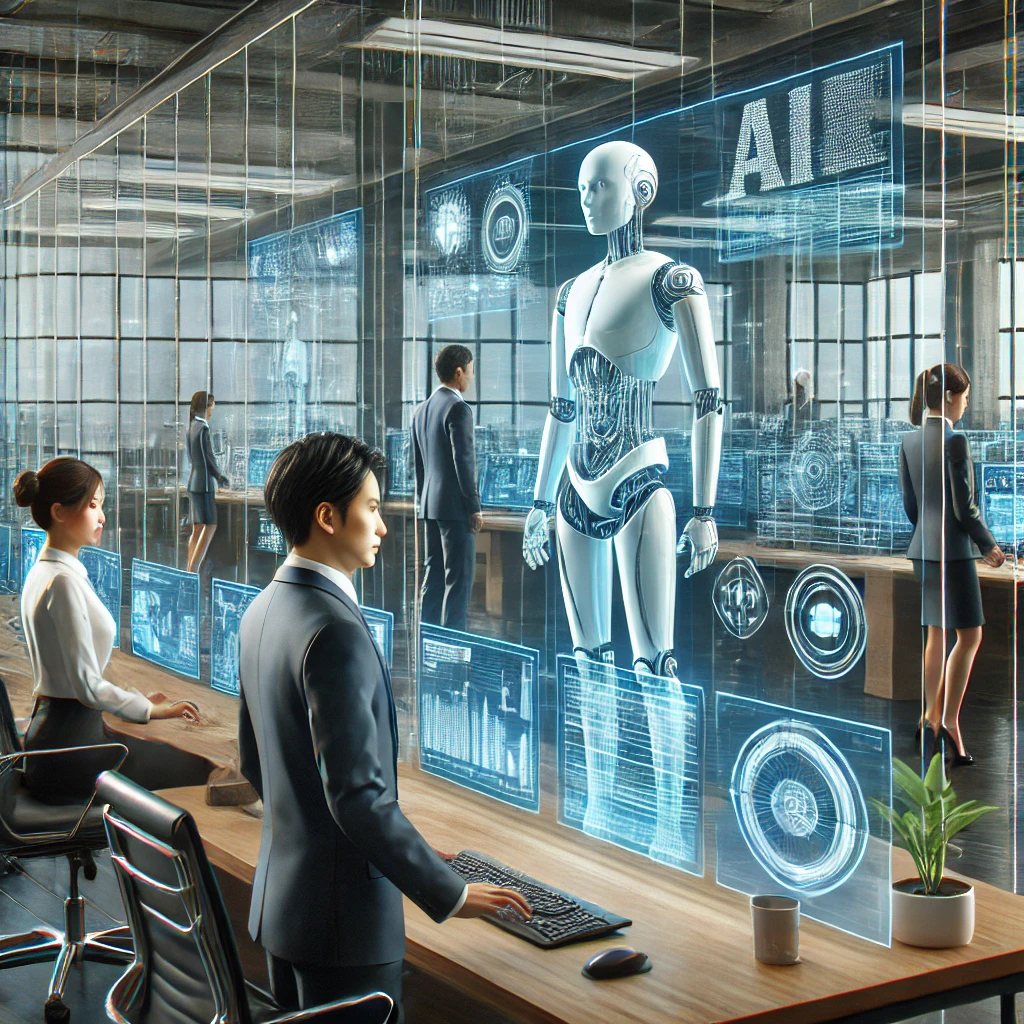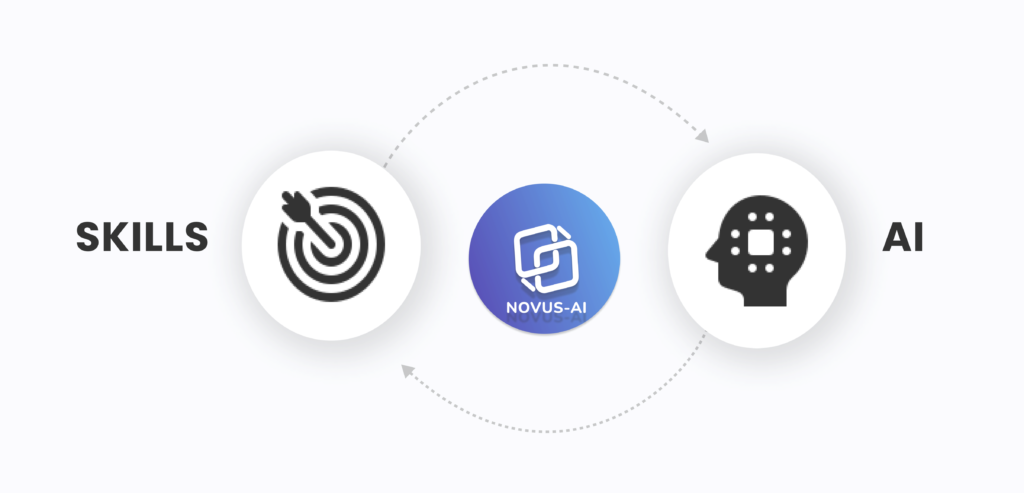Somhako Team July 2024

Introduction
Artificial Intelligence (AI) has revolutionized numerous industries, and Human Resources (HR) is no exception. Utilizing AI in HR can enhance talent sourcing, streamline recruitment processes, and provide personalized experiences for both candidates and employees. This comprehensive guide will delve into various aspects of AI in HR, offering insights into its practical applications and benefits.
Smarter Talent Sourcing and Hiring
AI-driven tools have transformed the talent sourcing and hiring landscape. With machine learning algorithms, HR professionals can now identify and attract top talent more effectively. AI can scan resumes, analyze job descriptions, and match candidates to roles with unparalleled accuracy. This not only reduces the time spent on manual sorting but also increases the likelihood of finding the best fit for the position.
Case in Point: According to Jane Doe, Head of Talent Acquisition at Tech Innovators Inc., “AI has enabled us to streamline our recruitment process, allowing us to source top talent efficiently. The precision with which AI identifies suitable candidates has improved our hiring outcomes dramatically.”
AI in HR: A Revolutionary Shift
The integration of AI into HR practices signifies a monumental shift in how organizations manage their human capital. AI technologies, such as machine learning and natural language processing, are enhancing the efficiency and effectiveness of HR functions. These advancements enable HR professionals to focus on strategic initiatives rather than administrative tasks, ultimately driving better business outcomes.
Smarter Talent Sourcing and Hiring
- AI-Powered Recruitment Tools
AI-powered recruitment tools are revolutionizing the talent acquisition process. These tools can analyze vast amounts of data to identify the best candidates for a role. By leveraging AI, recruiters can source talent more efficiently, reducing the time and effort required to fill positions.
2. Enhancing Candidate Matching with AI
AI enhances candidate matching by analyzing resumes and job descriptions to find the best fit. Machine learning algorithms can evaluate candidates’ skills, experience, and qualifications, ensuring that only the most suitable candidates are shortlisted. This not only streamlines the hiring process but also improves the quality of hires.

3. More Personalized Candidate and Employee Experiences
Personalization is a key advantage of using AI in HR. AI-driven systems can tailor job recommendations to candidates based on their profiles and preferences, creating a more engaging and relevant job search experience. For current employees, AI can personalize career development plans by analyzing individual skills, performance data, and career aspirations. This level of personalization helps in creating a motivated and satisfied workforce, as employees feel valued and understood. Moreover, AI can facilitate continuous feedback and recognition systems, providing real-time insights into employee performance and well-being.
4. Diversity, Equity, and Inclusion
AI can play a crucial role in promoting diversity, equity, and inclusion (DEI) within organizations. AI tools can help eliminate unconscious bias from the recruitment process by focusing on candidates’ qualifications and experiences rather than demographic factors. For instance, AI-powered software can anonymize resumes during the initial screening phase, ensuring that hiring decisions are based solely on merit. Additionally, AI can analyze workforce diversity data to identify gaps and recommend strategies for creating a more inclusive workplace. By leveraging AI, organizations can build a more diverse and equitable workforce, which is proven to drive innovation and business
5. Skill Assessments

AI-driven skill assessments offer a more accurate and unbiased evaluation of candidates’ abilities. Traditional assessments can be subjective and influenced by human biases, but AI tools use standardized metrics and data analysis to evaluate skills. These assessments can include simulations, coding tests, and psychometric evaluations, providing a comprehensive view of a candidate’s competencies. Furthermore, AI can continuously monitor employees’ performance and suggest upskilling opportunities, ensuring that the workforce remains competitive and capable of meeting future challenges.
6. Agile Workforce Planning
Agile workforce planning is essential in today’s fast-paced business environment. AI can provide HR teams with real-time insights into workforce dynamics, helping them to anticipate and respond to changes quickly. By analyzing data on employee skills, project requirements, and market trends, AI can predict workforce needs and recommend strategic hiring or internal mobility options. This enables organizations to adapt to shifting demands efficiently, maintain operational continuity, and optimize resource allocation.
7. Tailored Talent Development
Talent development is critical for retaining top talent and maintaining a competitive edge. AI can customize learning and development programs to meet the unique needs of each employee. By analyzing performance data and learning preferences, AI systems can recommend personalized training modules, courses, and career development opportunities. This tailored approach ensures that employees acquire the skills they need to advance their careers and contribute to organizational success. Additionally, AI can track the effectiveness of training programs, providing valuable feedback for continuous improvement.
8. Managing Compliance and Data Protection
Compliance and data protection are paramount in HR operations. AI can help manage these aspects by automating compliance checks and ensuring that data handling practices adhere to regulatory standards. AI tools can monitor employee data for compliance with labor laws, privacy regulations, and internal policies, reducing the risk of legal issues and penalties. Furthermore, AI can enhance data security by detecting and mitigating potential threats, ensuring that sensitive information is protected against breaches.
Collaboration and Decision Making
AI fosters collaboration and improves decision-making processes within HR teams. AI-powered analytics can provide HR professionals with actionable insights, enabling data-driven decisions. For example, AI can analyze employee engagement data to identify areas for improvement, recommend interventions, and measure the impact of HR initiatives. Additionally, AI can facilitate collaboration by providing platforms for seamless communication and information sharing among HR team members. This enhances coordination, improves problem-solving capabilities, and drives better outcomes for the organization.

